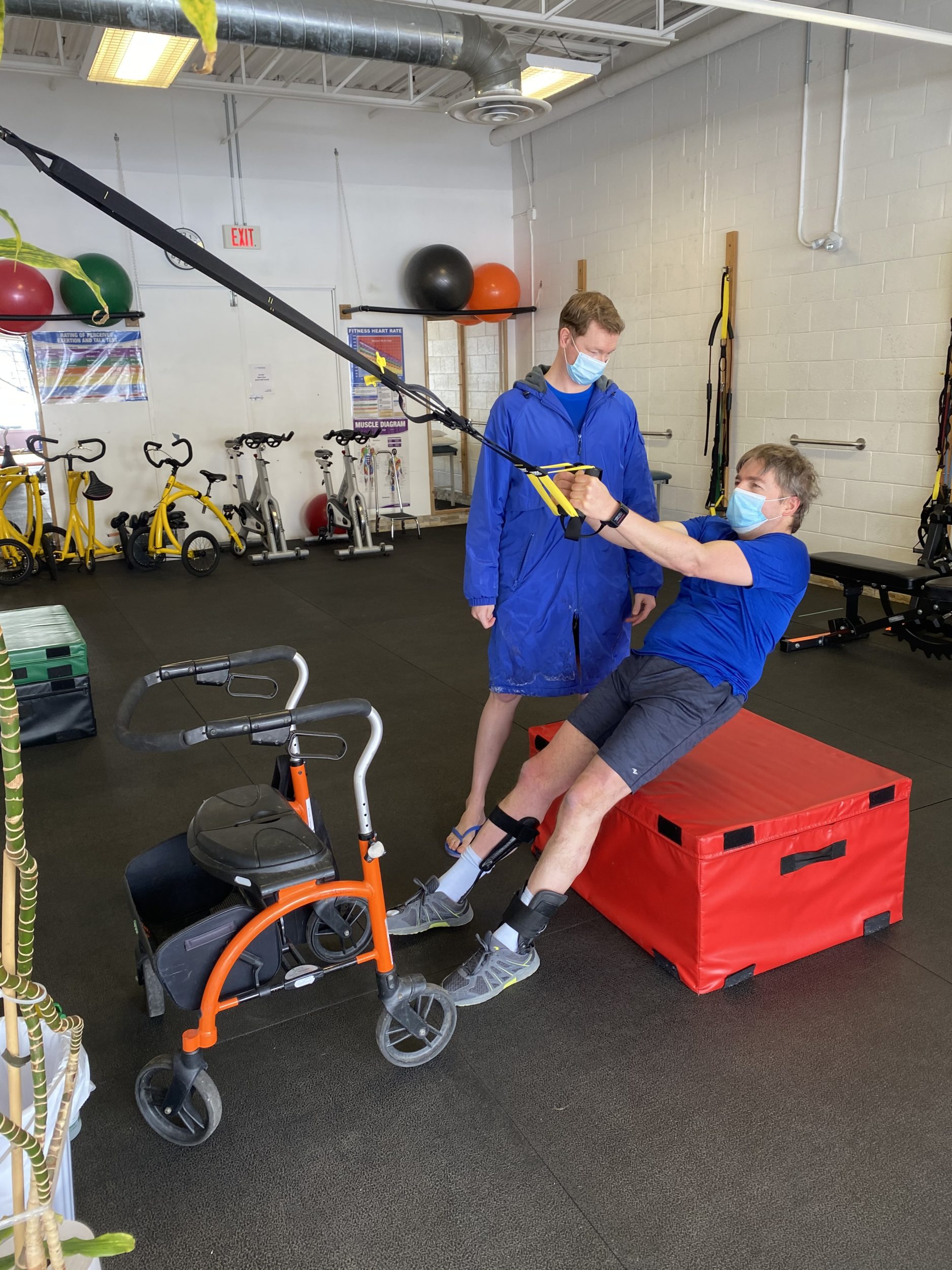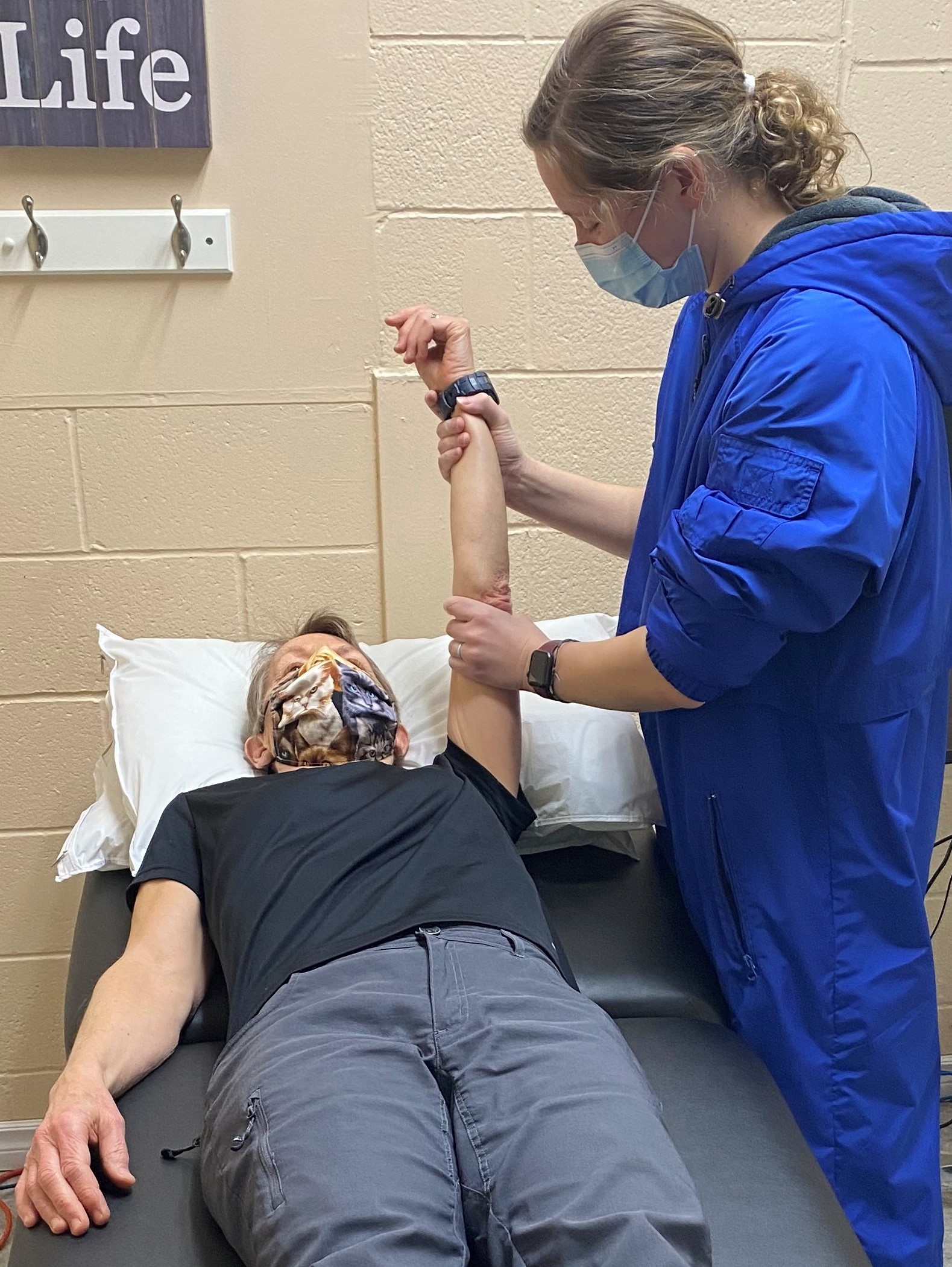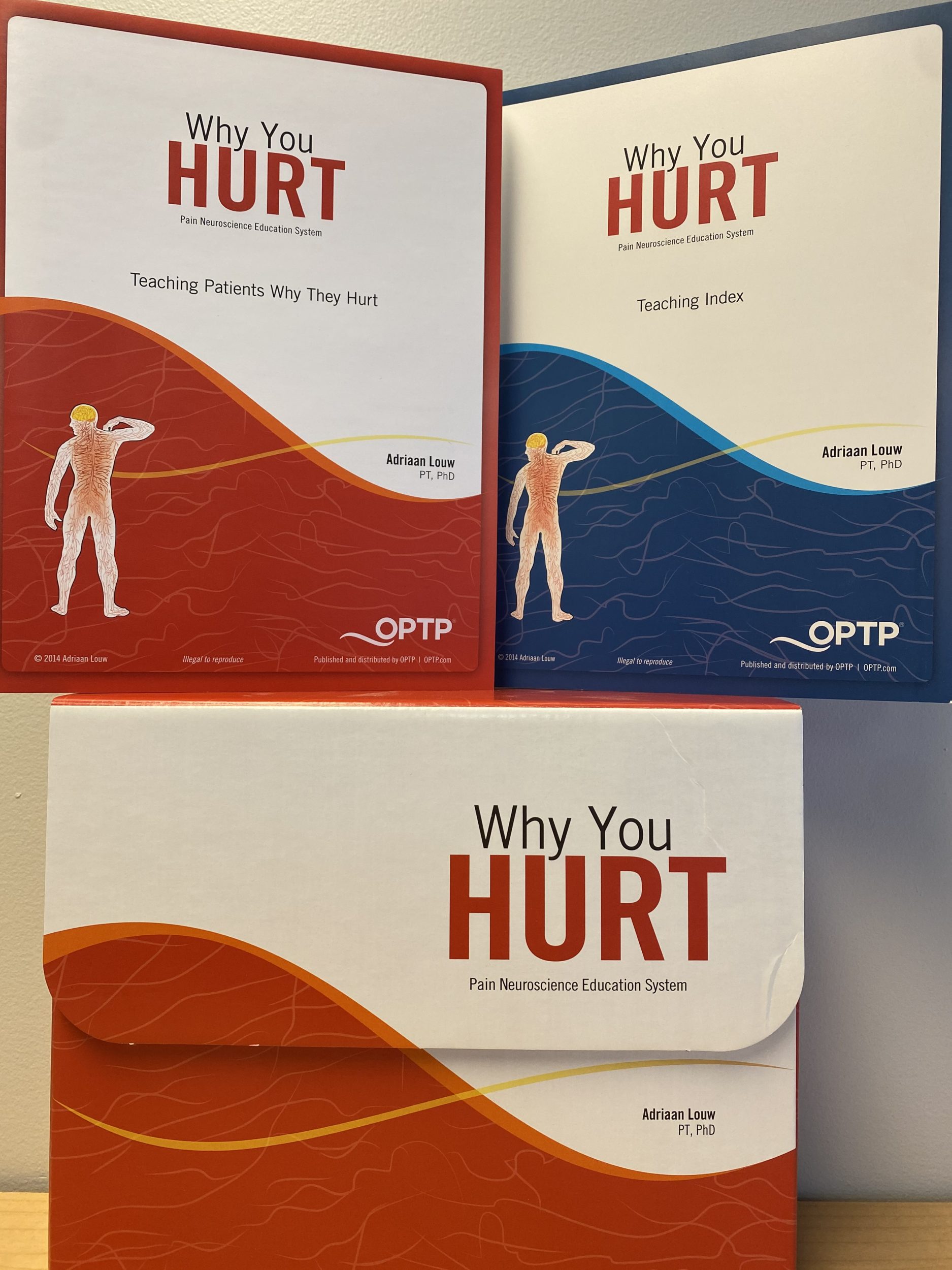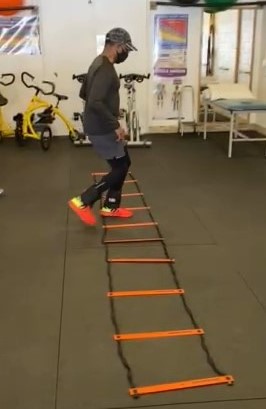
What is physiotherapy? And how can physiotherapy help you?
In this post, we’ll look at some common questions physiotherapists are asked. This will help you understand the scope of a physiotherapist’s practice and the range of places you can find them. This information can help you make better decisions when it comes time to choose a physiotherapist!
1) What is physiotherapy?

The College of Physiotherapists of Ontario tells us that physiotherapists are health-care professionals who study the science of movement, injury prevention and rehabilitation. The goal of physiotherapy is to restore, maintain and/or improve your function and overall well-being. A physiotherapist assesses and treats you, while empowering you by giving you the tools you need to be actively involved in your own recovery.
2) Where’s Waldo? Guess where you can find a physiotherapist at work!
Physiotherapists work in a wide variety of settings – and some may surprise you!
The Canadian Physiotherapy Association lists 14 divisions that represent the range of colleagues a physiotherapist might work with and the impressive skills sets a physiotherapist might have.
The list includes:

- Acupuncture
- Animal Rehab
- Cardiorespiratory
- Global Health
- Leadership
- Neuroscience
- Oncology
3) Oops! You have an injury!
- Orthopedics
- Pediatrics
- Pain Science
- Private Practice
- Seniors’ Health
- Sport
- Women’s Health
But you’re not sure if physiotherapy will help.
Discover what kinds of injuries physiotherapists treat.
Here are just a few examples:
- Muscle, joint and bone issues, such as ankle sprains, ligament tears, rotator-cuff injury, neck and back pain, and osteoarthritis.
- Cardiorespiratory conditions, such as chronic obstructive pulmonary disease (COPD), asthma, and vascular (heart and/or circulatory) disease.
- Neurological conditions, such as brain injuries, stroke, spinal cord injuries and multiple sclerosis (MS).
- Post-surgical care, such as after a spinal fusion, anterior cruciate ligament(ACL) repair, knee or hip replacement or amputation.
- Pelvic health, such as pre- and post-natal care and recovery.
- Chronic pain.
- After a car accident or workplace injury.
Something to think about: is there anything in the above list that you’re dealing with now?
4) You’ve decided to see a physiotherapist, but you’re not sure how the session will go.
What treatment strategies do physiotherapists use?
Physiotherapists have many tools in their toolbox that will help you along your recovery journey. With every client, they must juggle the best evidence to determine the best recommendations for you, based on your condition. They must also work within the scope of their individual practice and skills set.
Hydrotherapy / Aqua-Therapy
Dryland Therapy
Manual Therapy
Patient Education




Gait training
Exercise Programs
Functional Training
Acupuncture, Dry needling


FAQ’s
Do I need a physician’s referral to see a physiotherapist?
No, you don’t. Physiotherapists are considered primary health-care professionals. You can visit a physiotherapist directly, without a referral. However, some extended health insurance plans may require a referral from your doctor before you can be reimbursed for the cost of the treatment.
What can I expect to happen at my first physiotherapy session?
Your physiotherapist will:
- first, obtain your informed consent for assessment and treatment of your injury;
- gather detailed medical and injury histories, to better understand what is going on;
- assess you, using a variety of techniques, such as range of motion, strength, special joint tests, neurological testing, gait analysis and functional movement screening to determine the source of the issue;
- they will discuss a treatment plan with you, and it may include exercise, education and hands-on treatment; and
- finally, help you set goals that are tailored to what you hope to achieve.
Each physiotherapist will conduct an assessment slightly differently, depending on their area of expertise and your specific type of injury.
How long will it take to get better?
This is a very common question! Most physiotherapists hear it during their first session with a client. The truth is, it depends! And it depends on various factors, such as:
- length of time since the injury occurred;
- the severity of the injury;
- your age;
- any other medical conditions; and
- your ability to be an active participant in your rehabilitation.
Your physiotherapy session may last from a half to a full hour each week. You’ll want to consider this: what will you be doing during the other 23 to 23.5 hours a day to either help or slow down your recovery time?
References:
Canadian Physiotherapy Association website. “Divisions – Branches, divisions & assemblies.”
Found at from https://physiotherapy.ca/divisions (accessed January 27, 2021).
College of Physiotherapists of Ontario website. “What is physiotherapy?”
Found at https://www.collegept.org/patients/what-is-physiotherapy (January 27, 2021).
Author:
Emma Lis
Physiotherapist